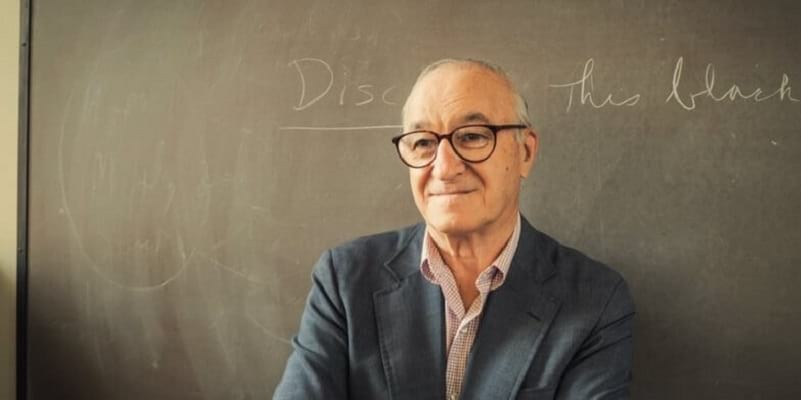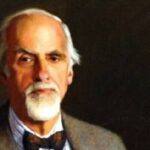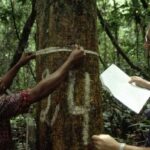Albert Bandura biography, theory and quotes

Albert Bandura (december 4 1925 – july 26 2021) was a globally recognized psychologist, author, and Professor Emeritus at Stanford University. He made valuable contributions to the field of psychology, including social cognitive and personality psychology. Theorist Albert Bandura is additionally the originator of the concepts social learning theory and self-efficacy, and he is well-known for the Bobo doll experiment.
Albert Bandura biography
Albert Bandura was born in Canada. His parent originally came from Poland and Ukraine, and both emigrated to Canada. He had five brothers. Albert was the youngest of the siblings.
In his early life, Albert Bandura was being educated at a small school in Canada. He mentioned that the educational resources in his school such as books were limited. It forced him to have a proactive working behavior to learn concepts which interested him most. Albert Bandura was for this reason personally responsible for his study progress.
He finalized high school and next went to the University of British Columbia in 1946 to study psychology. Since Albert Bandura was very eager to learn, he often arrived before class start and took additional classes early in the morning.
He often looked at various courses to follow to pass the time, until one day someone forgot to return a course catalog. While he browsed through the catalog, Albert found a course in psychology. From this moment, he continued learning about psychology, and he graduated within three years with the Bolocan Award.
Albert Bandura next continued his study at the University of Iowa in the United States where he obtained both his master’s degree in psychology in 1951 and his Ph.D. in clinical psychology in 1952.
After his graduation, Albert Bandura was offered to work as a professor at Stanford University. He accepted the offer and became chairman of the psychology department in 1976. Albert Bandura continued to work at Stanford University until 2010. As from 2010, he became professor emeritus.
The Bobo doll experiment and theory development
He became widely known after the implementation of the Bobo doll experiment. The Bobo doll experiment was a study on aggression in which Albert Bandura demonstrated that children learn through observation.
Part of the experiment was that a video was shown to children on which a person was aggressively punching and kicking a plastic Bobo doll. These children were later allowed to play in a room where the same bobo doll was located. The same children imitated the behavior of the adult in the video and immediately demonstrated aggressive behavior and made aggressive statements.
Albert Bandura called this behavior ‘observational learning’ because the children were not stimulated to harm the Bobo Doll, they merely imitated the behavior of the video.
In this period, there was an increasing number of children injuries who were injured because of the imitation of the dangerous behavior of television advertisements. The increasing aggressive behavior by children became a public concern, and as a consequent, various committees became involved, including the Federal Trade Commission and the Eisenhower Commission.
Since Albert Bandura recently conducted research related to observational learning and the social learning theory, he was invited to testify before the various committees. His testimony changed the way businesses were allowed to publicize their advertisement on public media channels.
Bandura died at home, in Stanford on July 26, 2021. The death cause was identified as congestive heart failure. He lived to be 95 years old.
His contribution to psychology
Albert Bandura was additionally the first person to demonstrate that everyone’s motivation to do things, the effort the individual put into doing it, and the personal feeling while the individual does it, all derive from the individual’s belief in its own capabilities.
His work is valued in psychology. Theorist Albert Bandura was for this reason also elected president of the American Psychological Association, an organization dedicated to advance psychology as a science, in 1974.
Albert Bandura’s work has influenced and contributed to today’s psychology. President Obama presented Albert Bandura with the National Medal of Science in a ceremony held at the White House in 2016. He also received the APA Outstanding Lifetime Contribution Award to Psychology in 2004 and the University of Louisville Grawemeyer Award for Psychology in 2008 for his work in self-efficacy and cognitive theory. He also received the Gold Medal Award for Distinguished Lifetime Contribution to psychological science for his outstanding lifetime contribution to psychology science.
Albert Bandura’s work has been published many times in academic journals, including Journal of Social and Clinical Psychology, Applied Psychology, and Media Psychology. He authored various books, and due to his contributions in psychology, he is recognized by Review of General Psychology as one the most distinguished psychologists of the 20th century.
Famous quotes
- “In order to succeed, people need a sense of self-efficacy, to struggle together with resilience to meet the inevitable obstacles and inequities of life.”
- “Fortunately, most human behavior is learned observationally through modeling from others.”
- “Given appropriate social conditions, decent, ordinary people can be led to do extraordinarily cruel things.”
- “People’s beliefs about their abilities have a profound effect on those abilities. Ability is not a fixed property; there is huge variability in how you perform.”
- “As we develop the moral aspect of our lives, we often adapt standards of right and wrong that serve as guides and deterrents for our conduct.”
- “It’s in our ability to selectively engage and disengage our moral standards, and it helps explain how people can be barbarically cruel in one moment and compassionate the next.”
- “Coping with the demands of everyday life would be exceedingly trying if one could arrive at solutions to problems only by actually performing possible options and suffering the consequences.”
- “Most of the images of reality on which we base our actions are really based on vicarious experience.”
- “Very often we developed a better grasp of the subjects than the over worked teachers.”
- “Some of the most important determinants of life paths arise through the most trivial of circumstances.”
Publications and Books by Albert Bandura
- 2017. Mechanisms of moral disengagement. In Insurgent terrorism, pp. 85-115. Routledge.
- 2014. Social cognitive theory of moral thought and action. In Handbook of moral behavior and developmentpp. 69-128. Psychology Press.
- 2012. On the functional properties of perceived self-efficacy revisited.
- 2009. Social cognitive theory of mass communication. In Media effectspp. 110-140. Routledge.
- 2006. Toward a psychology of human agency. Perspectives on psychological science, 12, 164-180.
- 2006. Guide for constructing self-efficacy scales. Self-efficacy beliefs of adolescents, 51, 307-337.
- 2006. Adolescent development from an agentic perspective. Self-efficacy beliefs of adolescents, 5, 1-43.
- 2005. The primacy of self‐regulation in health promotion. Applied Psychology, 542, 245-254.
- 2004. Health promotion by social cognitive means. Health education & behavior, 312, 143-164.
- 2003. Role of affective self‐regulatory efficacy in diverse spheres of psychosocial functioning. Child development, 743, 769-782.
- 2003. Negative self-efficacy and goal effects revisited. Journal of applied psychology, 881, 87.
- 2002. Social cognitive theory in cultural context. Applied psychology, 512, 269-290.
- 2002. Selective moral disengagement in the exercise of moral agency. Journal of moral education, 312, 101-119.
- 2001. Social cognitive theory: An agentic perspective. Annual review of psychology, 521, 1-26.
- 2001. Self‐efficacy beliefs as shapers of children’s aspirations and career trajectories. Child development, 721, 187-206.
- 2000. Exercise of human agency through collective efficacy. Current directions in psychological science, 93, 75-78.
- 2000. Cultivate self-efficacy for personal and organizational effectiveness. Handbook of principles of organization behavior, 2, 0011-21.
- 1999. Social cognitive theory: An agentic perspective. Asian journal of social psychology, 21, 21-41.
- 1999. Self-efficacy pathways to childhood depression. Journal of Personality and social Psychology, 762, 258.
- 1999. Moral disengagement in the perpetration of inhumanities. Personality and social psychology review, 33, 193-209.
- 1998. Health promotion from the perspective of social cognitive theory. Psychology and health, 134, 623-649.
- 1997. Self-efficacy: The exercise of control. Macmillan.
- 1996. Multifaceted impact of self‐efficacy beliefs on academic functioning. Child development, 673, 1206-1222.
- 1996. Mechanisms of moral disengagement in the exercise of moral agency. Journal of personality and social psychology, 712, 364.
- 1995. Self-efficacy in changing societies. Cambridge university press.
- 1994. Social cognitive theory and exercise of control over HIV infection. In Preventing AIDSpp. 25-59. Springer, Boston, MA.
- 1993. Perceived self-efficacy in cognitive development and functioning. Educational psychologist, 282, 117-148.
- 1992. Exercise of personal agency through the self-efficacy mechanism. Self-efficacy: Thought control of action, 1, 3-37.
- 1991. Social cognitive theory of self-regulation. Organizational behavior and human decision processes, 502, 248-287.
- 1989. Regulation of cognitive processes through perceived self-efficacy. Developmental psychology, 255, 729.
- 1989. Human agency in social cognitive theory. American psychologist, 449, 1175.
- 1989. Effect of perceived controllability and performance standards on self-regulation of complex decision making. Journal of personality and social psychology, 565, 805.
- 1988. Organizational applications of social cognitive theory. Australian Journal of management, 132, 275-302.
- 1986. The explanatory and predictive scope of self-efficacy theory. Journal of social and clinical psychology, 43, 359-373.
- 1986. Social foundations of thought and action. Englewood Cliffs, NJ, 1986.
- 1986. Differential engagement of self-reactive influences in cognitive motivation. Organizational behavior and human decision processes, 381, 92-113.
- 1984. Recycling misconceptions of perceived self-efficacy. Cognitive therapy and research, 83, 231-255.
- 1983. Self-evaluative and self-efficacy mechanisms governing the motivational effects of goal systems. Journal of personality and social psychology, 455, 1017.
- 1982. Self-efficacy mechanism in human agency. American psychologist, 372, 122.
- 1982. Microanalysis of action and fear arousal as a function of differential levels of perceived self-efficacy. Journal of Personality and Social Psychology, 431, 5.
- 1981. Self-referent thought: A developmental analysis of self-efficacy. Social cognitive development: Frontiers and possible futures, 2001, 239.
- 1981. Cultivating competence, self-efficacy, and intrinsic interest through proximal self-motivation. Journal of personality and social psychology, 413, 586.
- 1980. Tests of the generality of self-efficacy theory. Cognitive therapy and research, 41, 39-66.
- 1978. The self-system in reciprocal determinism. American psychologist, 334, 344.
- 1978. Social learning theory of aggression. Journal of communication, 283, 12-29.
- 1978. Reflections on self-efficacy. Advances in behavior research and therapy, 14, 237-269.
- 1977. Self-efficacy: toward a unifying theory of behavioral change. Psychological review, 842, 191.
- 1974. Behavior theory and the models of man. American psychologist, 2912, 859.
- 1973. Aggression: A social learning analysis. prentice-hall.
- 1969. Relative efficacy of desensitization and modeling approaches for inducing behavioral, affective, and attitudinal changes. Journal of Personality and Social Psychology, 133, 173.
- 1969. Principles of behavior modification.
- 1965. Influence of models’ reinforcement contingencies on the acquisition of imitative responses. Journal of personality and social psychology, 16, 589.
- 1963. Vicarious reinforcement and imitative learning. The Journal of Abnormal and Social Psychology, 676, 601.
- 1963. Social learning and personality development.
- 1963. Influence of social reinforcement and the behavior of models in shaping children’s moral judgment. The Journal of Abnormal and Social Psychology, 673, 274.
- 1963. Imitation of film-mediated aggressive models. The Journal of Abnormal and Social Psychology, 661, 3.
- 1961. Transmission of aggression through imitation of aggressive models. The Journal of Abnormal and Social Psychology, 633, 575.
- 1961. Identification as a process of incidental learning. The Journal of Abnormal and Social Psychology, 632, 311.
How to cite this article:
Zeeman, A. (2018). Albert Bandura. Retrieved [insert date] from Toolshero: https://www.toolshero.com/toolsheroes/albert-bandura/
Original publication date: 07/04/2018 | Last update:03/19/2024
Add a link to this page on your website:
<a href=” https://www.toolshero.com/toolsheroes/albert-bandura/”>Toolshero: Albert Bandura</a>










